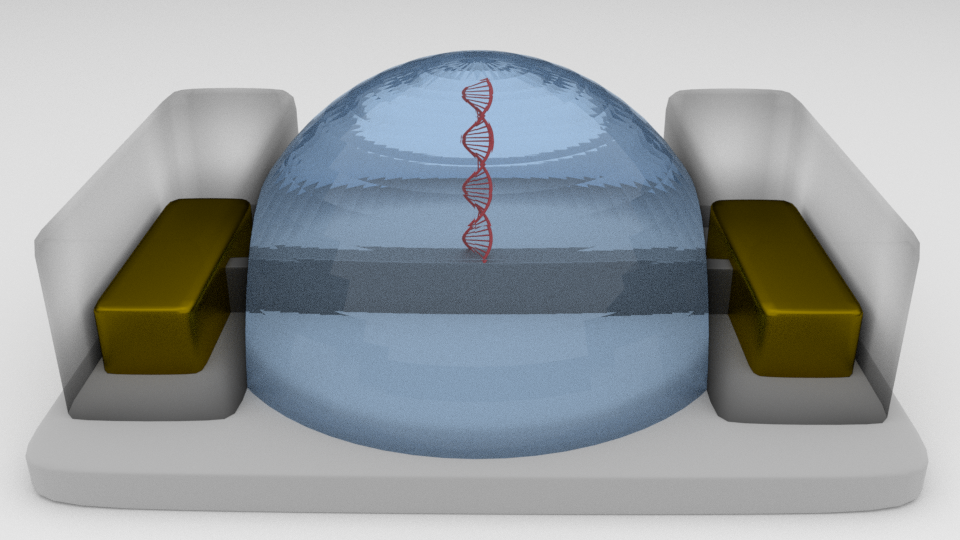Nano-scale Field Effect Transistor for Single-Biomolecule Sensing
Master projects/internships - Leuven | More than two weeks ago
Explore biosensing at the nanoscale
With significant progress in CMOS process technology, we are now able to manufacture nano-scale Field-Effect Transistors (FETs) down to 7 nm. This has opened doors not just for better computing but also for more sensitive and higher throughput bio-sensing of proteins and DNA.
An important innovation lies in the large-scale integration of nanoscale transistors for analyzing biological systems, which could provide for massive parallelization and deliver a more complete view of a biological system at a reasonable cost. However, several open challenges still need to be tackled to achieve such a large-scale bio-electronic sensor chip. In this master thesis, the student will investigate nano-sized field effect transistors, bioFETs and/or nanopore FETs, for their ability to sense single biomolecules in electrolytic environments. The student will focus on the understanding of the impact of the properties of the sensed molecule, surface coatings and/or functionalization on biosensing. We seek to gain a deeper understanding by combining experimental work with modeling and simulation work.
The target molecule’s properties, such as its charge, shape, hydrophilicity, etc. play a crucial role in sensing. Synthetic molecules can be designed to probe for the impact of these different properties. Moreover, the surface of the transistor sensor plays an important role in FET-based biosensing. Coatings such as Self-Assembled Monolayers (SAM), polyethylene glycol (PEG) coatings and Atomic Layer Deposition (ALD) coatings can have a strong impact on the sensor’s signal strength but also the sensor's kinetics. For the bioFET case, the sensor needs to be functionalized with probe molecules that can bind specifically with the target molecules floating around in the electrolyte solution. For the nanopore FET, coatings strongly impact the electroosmotic flow through the nanopore. For both devices, surface coatings can tune the surface properties like surface charge, etc. which are key parameters for the signal strength and sensor kinetics.
During the master thesis, the FET sensors will be characterized in detail to understand their behavior for different types of target molecules and/or for different types and methods of surface coatings. Work can also be done on analyzing the noise contribution of the coatings, molecules and the effect of the electrolytic environment. The thesis will involve working in biochemistry and electrical characterization labs. Working in the imec cleanroom is a possibility but is not required. Simulation packages like GTS TCAD for FET simulations and/or Comsol for multiphysics simulations will be used to gain a deeper understanding of the underlying sensing mechanism. Molecular sensitivity and the potential of obtaining FET-based single-molecule sensors will be investigated.

Type of Project: Internship; Thesis; Combination of internship and thesis
Master's degree: Master of Science; Master of Engineering Science; Master of Bioengineering
Master program: Bioscience Engineering; Chemistry/Chemical Engineering; Materials Engineering; Nanoscience & Nanotechnology; Physics
Duration: > 4 months
Supervisor: Pol Van Dorpe
For more information or application, please contact the supervising scientists Sybren Santermans (sybren.santermans@imec.be) and Koen Martens (koen.martens@imec.be).
Imec allowance will be provided for students studying at a non-Belgian university.
